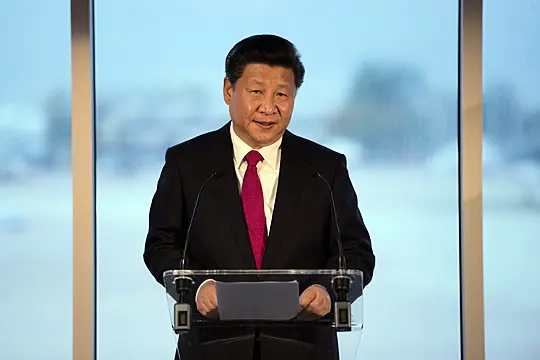Chinese president Xi Jinping has congratulated US president-elect Joe Biden on his victory.
Mr Xi expressed hope for “win-win co-operation” amid conflicts over trade, technology and security that have plunged Sino-American relations to their lowest level in decades.
Mr Biden is widely expected to try to resume co-operation with China on North Korea, climate change and coronavirus following the confrontational approach of Mr Trump, who launched a tariff war and sanctioned Chinese companies.
But analysts expect few major US policy changes due to widespread frustration with Beijing over trade, human rights and technology theft.
China became one of the last major governments to congratulate Mr Biden two weeks ago. There was no explanation for the delay but some commentators suggested Beijing wanted to avoid straining relations with Mr Trump, who has yet to formally concede and is in office for another two months until January 20.
In a message to Mr Biden, Mr Xi said “healthy and stable” relations are “the common expectation of the international community”, according to the official Xinhua News Agency.
“We hope the two sides will uphold the spirit of non-conflict and non-confrontation, mutual respect and win-win co-operation, will focus on co-operation, control differences and promote healthy and stable development of Chinese-US relations,” the statement said.
It said Chinese vice president Wang Qishan also sent a message to Kamala Harris to congratulate her on being elected vice president.

The United States and China have one of the world’s biggest trading relationships but official ties have been impacted by spying accusations, the coronavirus pandemic, Beijing’s crackdown on Hong Kong and disputes over control of the South China Sea.
Mr Trump has blocked access to US technology for Chinese telecom equipment maker Huawei on security grounds. He is trying to limit access to the United States for Chinese social media services, which the White House says might gather too much personal information about Americans.
Mr Trump has stepped up pressure on Beijing since the election by issuing an order that bars Americans from investing in securities issued by companies US officials say are owned or controlled by the Chinese military.
Some forecasters suggest the change from Mr Trump, who rejected multilateral alliances, to Mr Biden might increase pressure on China if Washington forms a coalition with other developed countries to push for policy changes.







